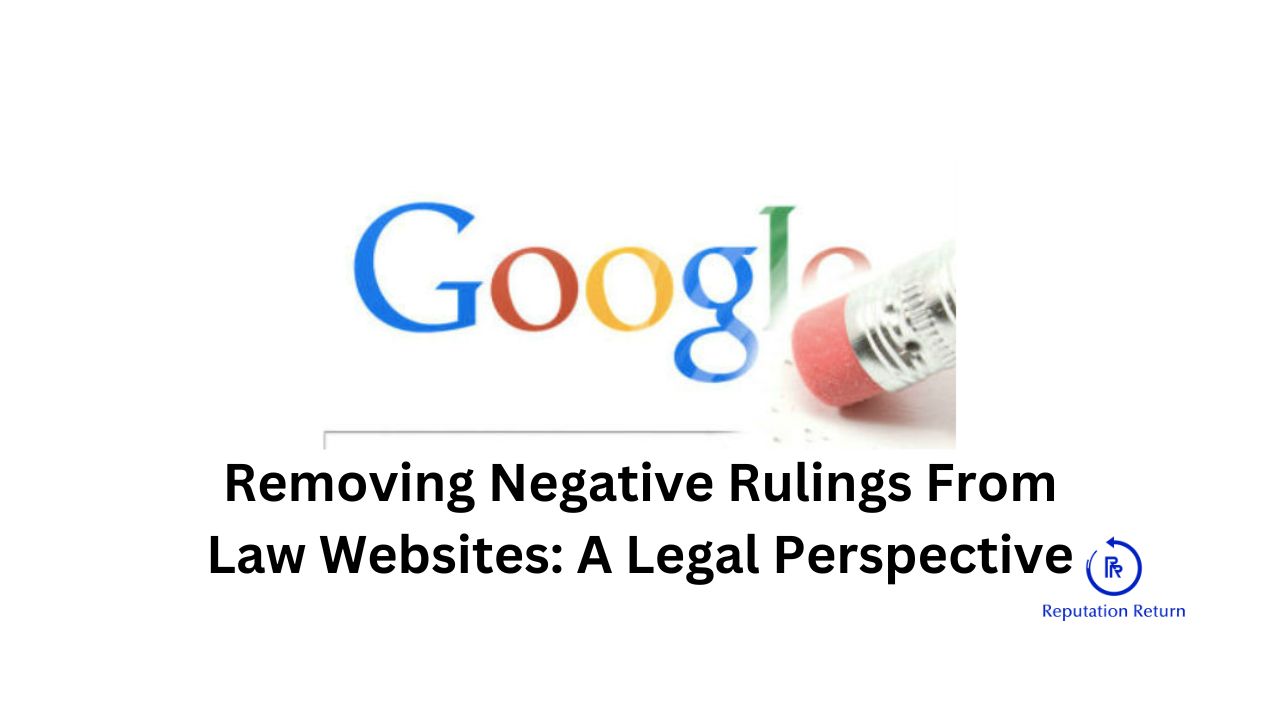The accessibility of court rulings and legal decisions online can have significant repercussions on an individual’s or a business’s reputation. Negative rulings, even those that are outdated or later overturned, can appear prominently on law websites and affect public perception. This guide will explore the legal and ORM avenues available for removing or mitigating the impact of negative rulings from law websites.
Understanding the Legal Context
Legal rulings and court decisions are public records, meaning they are generally accessible to anyone. Law websites compile and publish these records, making them easily searchable online. This transparency serves an important public function but can also lead to long-lasting reputational damage for those involved in negative rulings.
The Impact of Negative Rulings
1 Reputation Damage: Negative rulings can harm personal and professional reputations, affecting career prospects and business relationships.
2 Privacy Concerns: Sensitive details about personal or business matters can become public, leading to privacy issues.
3 Financial Implications: Negative rulings can deter potential clients or investors, impacting financial stability and growth.
4 Emotional Distress: Continuous visibility of negative legal outcomes can cause significant emotional stress.
Legal Steps to Remove or Mitigate Negative Rulings
1 Evaluate the Ruling:
◦ Assess the ruling and its implications.
◦ Determine if there are legal grounds to challenge the publication of the ruling, such as inaccuracies or privacy violations.
2 Expungement or Sealing of Records:
◦ Expungement: In some cases, you may be eligible to have your record expunged, meaning it is erased from public records. Eligibility varies by jurisdiction and typically applies to minor offenses or cases where charges were dismissed.
◦ Sealing: Sealing a record means that it is not accessible to the public but still exists in the legal system. This is often an option for juvenile records or certain criminal cases.
3 File a Motion to Seal or Expunge:
◦ Consult with a lawyer to determine if you qualify for expungement or sealing of your record.
◦ File a motion in the appropriate court, providing compelling reasons why the record should be expunged or sealed.
4 Negotiate with the Website:
◦ Contact the law website hosting the ruling.
◦ Request the removal of the ruling, especially if it has been expunged or sealed.
◦ Provide legal documentation supporting your request.
5 Right to Be Forgotten:
◦ In certain jurisdictions, such as the European Union, individuals have the "right to be forgotten," allowing them to request the removal of personal data from online platforms.
◦ Submit a formal request to the law website, citing relevant legal provisions and providing necessary documentation.
6 File a Defamation Lawsuit:
◦ If the negative ruling contains false information that damages your reputation, consider filing a defamation lawsuit.
◦ A successful defamation case can compel the website to remove or correct the false information.
7 Request De-Indexing from Search Engines:
◦ Even if the ruling cannot be removed from the law website, you can request search engines like Google to de-index the URL, making it less visible in search results.
◦ Use Google’s Remove Outdated Content tool or Right to Be Forgotten form for this purpose.
8 Hire a Legal Professional:
◦ Engage a lawyer specializing in internet law and defamation to navigate the complexities of removing negative rulings.
◦ Legal professionals can provide guidance, file necessary motions, and negotiate with websites on your behalf.
Example Scenario
Imagine you are a business owner who was involved in a legal dispute years ago. Although the case was settled amicably and the ruling was in your favor, the initial negative ruling still appears prominently on law websites, affecting your business reputation. By consulting with a lawyer, you determine that the record can be expunged. You file a motion to expunge the record, and once granted, you contact the law website to request removal, providing the expungement order as evidence. Additionally, you request Google to de-index the URL to ensure it no longer appears in search results.
Professional Help with Reputation Return
Navigating the legal processes to remove or mitigate negative rulings can be complex and time-consuming. Professional services like Reputation Return specialize in online reputation management and can offer invaluable assistance in dealing with legal records.
Are you ready to stop the pain and frustration of these listings?
Contact us now.

